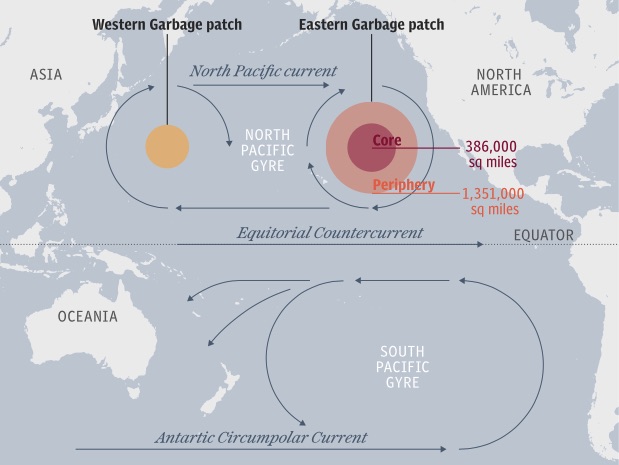It is a story that is both surprising and ultimately so obvious, as to how the economic world should function. The history of the association of a major sports textile brand, Adidas, and an NGO involved in ocean conservation, Parley. A collaboration at the source of a greater respect for the environment by the reduction of the oceanic waste, but also, a beautiful innovation and a remarkable growth.
The oceans are certainly one of the most important and fragile ecosystems on our planet. And unfortunately, the last decades of unreasonable consumption and production have disturbed more than ever this treasure we still know so little.
One of the major causes of disturbance of the functioning of the oceans is plastic waste, which has become so numerous that the term "7th continent" is now used to name the billions of fragments of plastics that agglomarated north of the Pacific Ocean, under the effect of the gyres, these whirlpools formed by the marine currents.

Discovered twenty years ago, in 1997, this 7th continent, also known as the Great Pacific Garbage Patch, is the largest of these accumulations, with an area of 3.43 million km2, that is to say 6 times France, and a depth that varies between 10 and 30m. But this is not the only one since there are 5 gyres on the globe: 2 in the Pacific Ocean, North and South, 2 in the Atlantic Ocean, North and South, and 1 in the Indian Ocean.
In total, it is now estimated that more than 5,000 billion plastic debris are floating in the oceans, equivalent to about 269,000 tonnes of waste. This plastic soup is the cause of irreversible effects on marine fauna and flora. In addition to the dispersal of chemical pollutants, 1 million birds and 100,000 marine mammals die each year due to injuries related to these wastes or their ingestion. (Source Surfrider)
« If the Ocean dies, we die! » Captain Paul Watson - Sea Shepherd Conservaton Society
To combat this global and growing threat of ocean pollution by plastics, Parley propose the "AIR" strategy: -AVOID plastic wherever possible -INTERCEPT plastic waste -REDESIGN the plastic economy
If power is partly in the hands of consumers by acting responsibly, it is also between those of economic actors and large companies in particular, limiting their impact on the environment and offering products on the market. ecologically sustainable. It is crucial today to integrate this upstream, in strategy, in sourcing as well as in production methods.
With the support of Parley, Adidas has therefore imagined and designed a first shoe model, based on their UltraBOOST range, with the upper part of the shoe made from 5% recycled polyester and 95% plastic waste collected in Maldivian waters, the equivalent of 11 plastic bottles per pair of shoes. Other recycled materials were used for the rest of the shoe, including the heel and laces.
At the beginning, only 7,000 pairs of Parley-branded UltraBOOSTs were produced, but with the ambition to accelerate if reaching success. In 2017, about 1 million pairs are planned, sold in a premium segment, up to € 200. An incredible development, and that's good news! Adidas even offer today a dozen items in their Parley range, women and men shoes, and running shorts.
Adidas, by embracing this problem, and thanks to the creativity and boldness of its employees as well as the support of a committed NGO, has managed to offer innovative high-performance equipment on the market, to participate concretely in reducing ocean plastic waste, and to display a very beautiful commercial success. An example to follow, and that proves that it is possible to make sustainable development economically (very!) efficient

